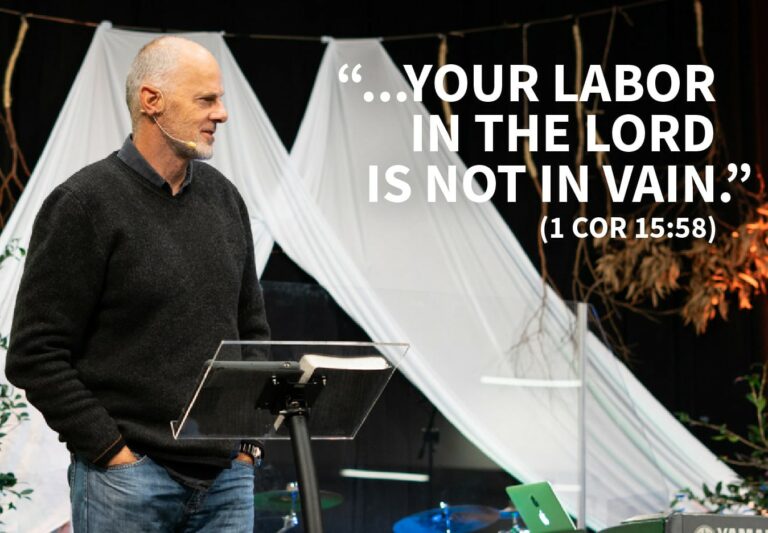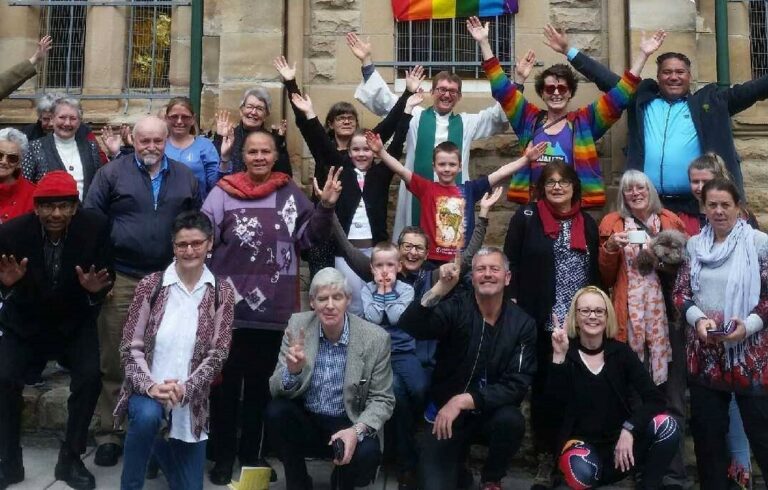Here’s an excerpt from our interview with C3 People, Merewether, whose leaders Ryan and Erika Croxford and their team, build their health and vitality through initiatives such as this.
Read the conversation below.
NCLS: If you had to describe how leadership happens at 3C People, how would you describe it?
RC: Intentionally. As well as meeting with our key team, we’re always looking out for those that have potential on them. I’ve grown tired of even the concept of building leaders because very few are, and so I’ve dropped that a little bit from my own life as well.
For me, it’s more helping people to achieve their purpose. Everyone’s given a purpose. There’s a reason that they’ve been created and placed in this earth at this time and are with us as a people, and so I just look to unlock what that is with people and help them to achieve that, whether it’s leadership or not. And so we don’t so much talk about that.
Yes, we do leadership training and so on, but we invite people to that. We don’t tell, hey, come to this leadership night because you’re possibly a leader. They probably aren’t. The society we know, there’s 3%, so it’s a very, very small percentage.
NCLS: So without labelling people as, you are a leader, or, you’re not a leader. Without that label. It seems like your approach is more a ministry of all believers. That we’re all here. We can all do this.
RC: Unlocking purpose. Unlocking purpose is the goal because if, at the end of the day, they connect with whatever their purpose is, they’re going to be happy, they’re going to be effective, and they’re going work well with others.
Whereas if you’re trying to force into a leadership model… Because that’s what everyone’s talking about in church like, you’ve got to raise leaders, you’ve got to raise leaders. You don’t need to do that as much as just help people find out what their purpose is, and that’ll come out. If they’re a leader, it’ll be apparent.
NCLS: As you’re saying, if that’s their purpose, is there an energy behind that? Does that approach contribute to more sustainability? So people are actually operating in an area that they find they enjoy and that they’re gifted in?
RC: Yes. The other thing that’s the challenge as well, that I’m really working on is not about trying to get people to fulfill their purpose within the church. It’s fulfilling their purpose in life, in their vocation.
So that’s a different focus and it’s a different conversation, and so all of that, even our courses and our leadership training or whatever, is focused on that. It’s not just trying to get someone to fill a volunteer role in the church. You know what I mean? So that’s a different focus that we have.
There are operational roles and functions that we need to fulfill, and we do that in a very intentional way through our nominations. We have a monthly nominations meeting prior to the pastoral care one. It’s a lunch after church, so I’m not calling them out for another day. It’s just tacked on to make it easy. And then we do nominations.
So it goes around the room and everyone gives an update. This is everyone overseeing ministry areas and how their ministry areas are going. And then we ask the question, who are you nominating? Who are you seeing to be added to your team to help facilitate the ministry of the church? We don’t do big volunteer asks, hey, who wants to be a volunteer?
Again, we do it in a very intentional way, but we’re looking to see the golden people and to draw it out, but most of the time, people won’t know of the golden and their purpose. You have to intentionally unlock it for them. You have to call it out.
NCLS: How would you describe the way you do that?
RC: So with that nominations, that is a key step, and it also creates accountability because one of the other things you’ll find in most churches is they’ll say, I can’t find volunteers, but the reality is they haven’t asked anyone.
But call them to say, hey, who are you going to nominate, one thing happens. They’ve got to sit and consider, who am I going to nominate to join my team? The other thing that happens in church life is you’re robbing Peter to pay Paul, so you’re going for that volunteer that’s excellent on someone else’s team.
So what nominations do as well, is it stops that happening because they’re all sitting in the same room so they go, hey, I’d like to nominate Charmaine to join my team, on the first impressions team, and the kid’s team lady goes, excuse me, Charmaine’s already on my team. If we do that, I’m concerned that we would create too much of a burden for Charmaine and might actually have a more detrimental effect upon the person. And so we say, no, it’s a no go, don’t ask Charmaine. So it never gets to that.
It also vets out those, particularly with kid’s ministry, if someone’s not that the most appropriate for that role. Again, if you go, hey, we’re looking for volunteers to kid’s church, and then you may get some people that no parent in their life would want them near their children. Well, they come up and go, I’d be great with kids. Well, that never happens. But they might be great on the setup team.
So it stops a lot of pain and a lot of extra pastoral care that happens a lot in churches, the awkward conversations that should never happen.
NCLS: So if you’re often inviting people to become part of a team, do people still volunteer themselves saying, I would like to do such and such? Do you have that mix?
RC: Yes, it happens less so, obviously, a lot less frequent, but then what we say is, oh great, thank you for that. We’re having our team leadership meeting in the next week or something. Could I let everyone know that you’re interested in serving our team and see if there’s a need in that area? Oh yes, sure. Great, we’ll do that. I’ll come back to you.
And we might come back to that person and say, we don’t have a need in kids, but we really do have a need on set up. Would you consider serving in that area?







